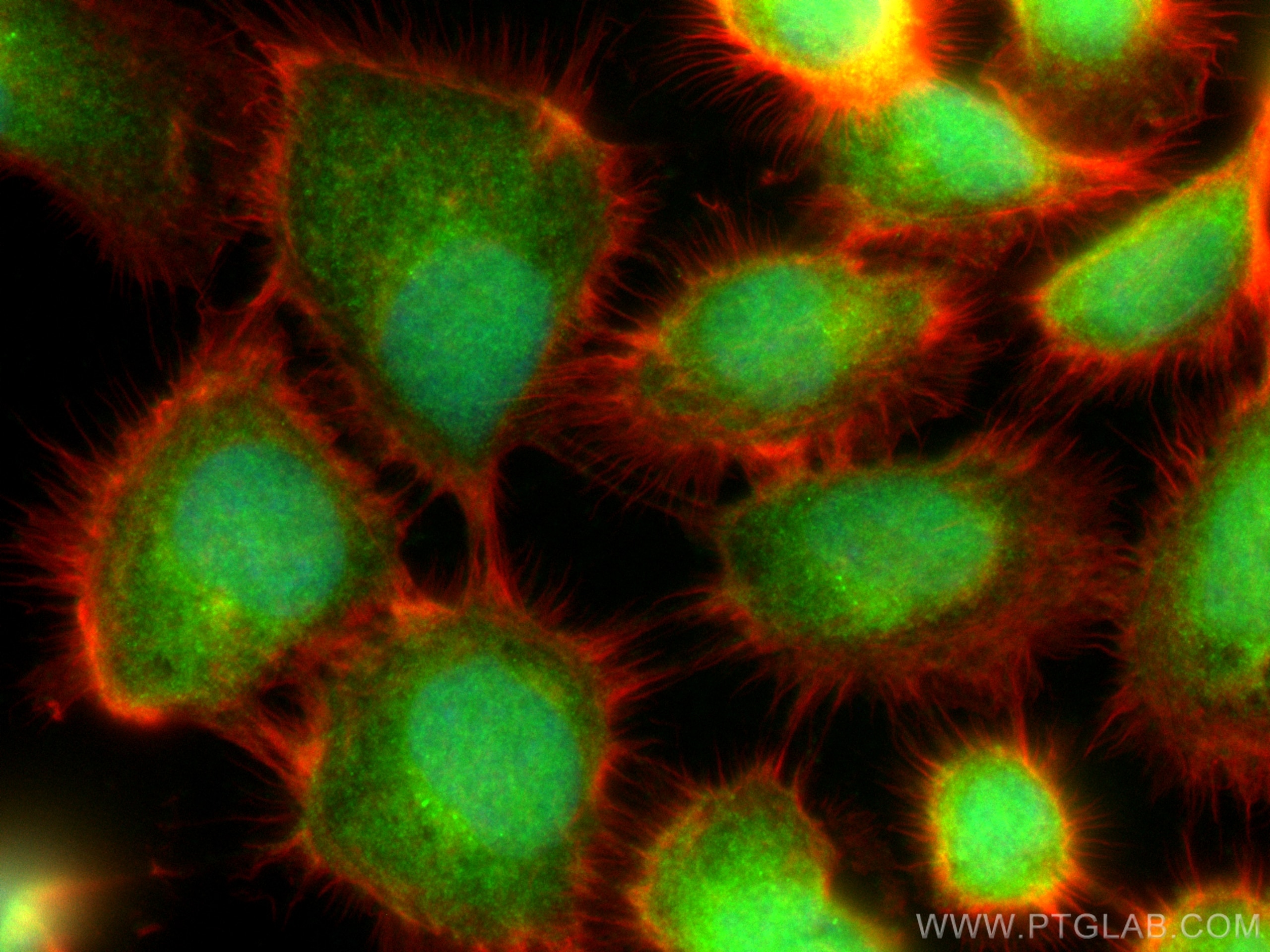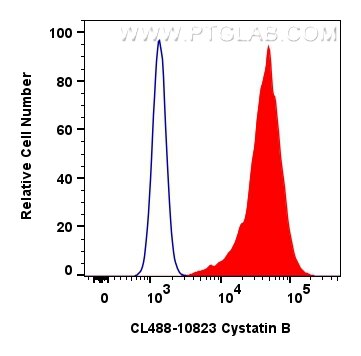- Phare
- Validé par KD/KO
Anticorps Polyclonal de lapin anti-Cystatin B
Cystatin B Polyclonal Antibody for IF/ICC, FC (Intra)
Hôte / Isotype
Lapin / IgG
Réactivité testée
Humain
Applications
IF/ICC, FC (Intra)
Conjugaison
CoraLite® Plus 488 Fluorescent Dye
N° de cat : CL488-10823
Synonymes
Galerie de données de validation
Applications testées
| Résultats positifs en IF/ICC | cellules A431, |
| Résultats positifs en FC (Intra) | cellules MCF-7, |
Dilution recommandée
| Application | Dilution |
|---|---|
| Immunofluorescence (IF)/ICC | IF/ICC : 1:50-1:500 |
| Flow Cytometry (FC) (INTRA) | FC (INTRA) : 0.80 ug per 10^6 cells in a 100 µl suspension |
| It is recommended that this reagent should be titrated in each testing system to obtain optimal results. | |
| Sample-dependent, check data in validation data gallery | |
Informations sur le produit
CL488-10823 cible Cystatin B dans les applications de IF/ICC, FC (Intra) et montre une réactivité avec des échantillons Humain
| Réactivité | Humain |
| Hôte / Isotype | Lapin / IgG |
| Clonalité | Polyclonal |
| Type | Anticorps |
| Immunogène | Cystatin B Protéine recombinante Ag1262 |
| Nom complet | cystatin B (stefin B) |
| Masse moléculaire calculée | 11 kDa |
| Poids moléculaire observé | 11 kDa |
| Numéro d’acquisition GenBank | BC003370 |
| Symbole du gène | Cystatin B |
| Identification du gène (NCBI) | 1476 |
| Conjugaison | CoraLite® Plus 488 Fluorescent Dye |
| Excitation/Emission maxima wavelengths | 493 nm / 522 nm |
| Forme | Liquide |
| Méthode de purification | Purifié par affinité contre l'antigène |
| Tampon de stockage | PBS with 50% glycerol, 0.05% Proclin300, 0.5% BSA |
| Conditions de stockage | Stocker à -20 °C. Éviter toute exposition à la lumière. Stable pendant un an après l'expédition. L'aliquotage n'est pas nécessaire pour le stockage à -20oC Les 20ul contiennent 0,1% de BSA. |
Informations générales
Cystatin B (CSTB), a member of the cystatin superfamily protein, is a stefin that functions as an intracellular thiol protease inhibitor and has been thought to play a role in protecting against the proteases leaking from lysosomes. CSTB plays various functions in a variety of diseases, including epithelial ovarian cancer, colon cancer, and myoclonus epilepsy. Evidence indicates that mutations in CSTB are responsible for the primary defects in patients with progressive myoclonic epilepsy (EPM1). One type of mutation responsible for EPM1 is the expansion in the promoter region of this gene of a CCCCGCCCCGCG repeat from 2-3 copies to 30-78 copies.
Protocole
| Product Specific Protocols | |
|---|---|
| IF protocol for CL Plus 488 Cystatin B antibody CL488-10823 | Download protocol |
| Standard Protocols | |
|---|---|
| Click here to view our Standard Protocols |



